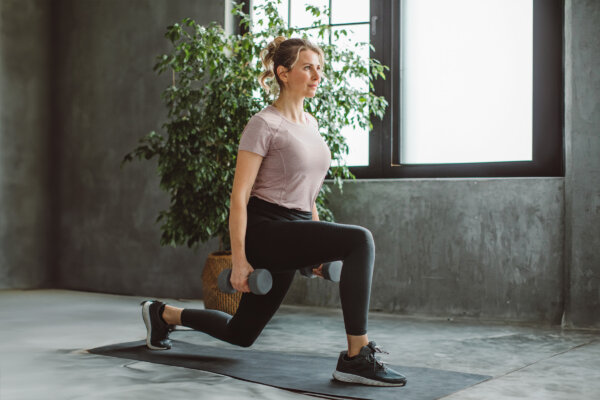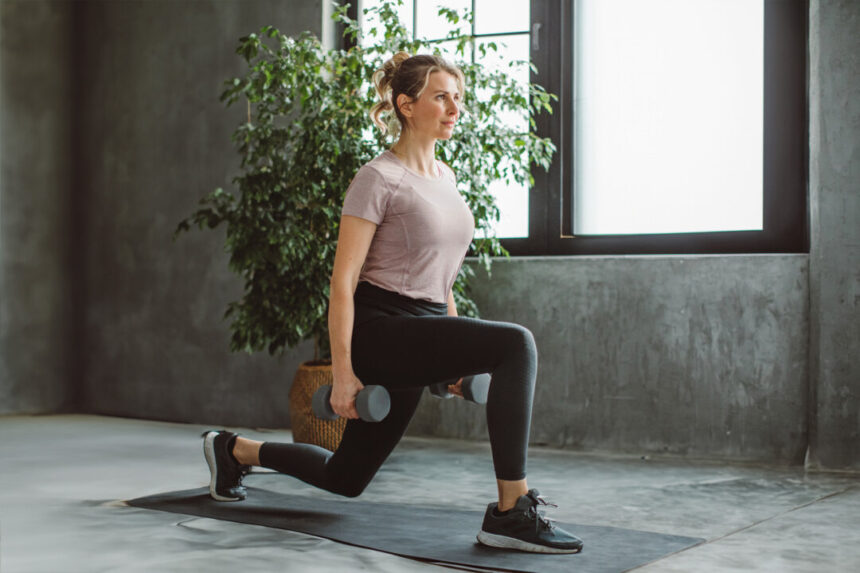
Jenn Reed’s experience during menopause was not what she had anticipated. Despite being a health-conscious empty-nester mom who had always been active and fit, she found herself neglecting her health and gaining 25 pounds.
Feeling lethargic, unhappy, and isolated, Reed’s husband grew concerned. After numerous visits to specialists, she discovered that years of using birth control pills had prevented her body from producing its own hormones, making her menopausal symptoms particularly severe.
Menopause can bring about various symptoms like hot flashes, night sweats, and heart palpitations. It is also linked to sexual issues, urogenital problems, mood disorders, and other health risks such as bone density loss, cognitive fluctuations, and heart problems.
Midlife Is Not the End
Reed started sharing her journey on social media and realized she was not alone. This realization motivated her to seek solutions and stay committed to her health. She prioritized regular exercise, even on days when she didn’t feel like it.
She switched from cardio-focused workouts to strength training, which she credits for improving her sleep, stress resilience, and gut health.
Fitness can help women combat the muscle loss that occurs as estrogen levels decline with age. Research suggests that sedentary women are more likely to experience severe menopausal symptoms.
Tone and Fit vs. Thin and Frail
Wanda Mayeux, a menopause fitness coach, discovered that her intense CrossFit routine was no longer beneficial after reaching menopause. The endurance training was causing hormonal imbalances and fatigue, leading her to prioritize strength training for better health.
As women age, the risk of osteoporosis increases. Exercise can help maintain bone strength and prevent fractures caused by brittle bones due to estrogen decline.
A Chance for Better Health
Mayeux emphasized the importance of a healthy mindset during menopause. Negative attitudes towards menopause can worsen symptoms, while a positive outlook can lead to a better experience.
Necessity of Postmenopausal Exercise
Many women reduce exercise and increase food intake during menopause, leading to weight gain and muscle loss. Regular exercise, particularly strength training, can help maintain muscle mass, improve cardiovascular health, and reduce the risk of various health conditions.
They also had better bone density.
Those who participated in a strength exercise group experienced better lean mass, increased femoral bone density, and reduced kyphosis compared to those who did unsupervised exercise at home. They also had a reduced risk of falls, improved motor and muscle coordination, and overall better bone density.
The study highlighted the benefits of exercise as an alternative to pharmacological intervention or hormone replacement therapy for women. Resistance training has been shown to be particularly effective in counteracting the negative effects of menopause, especially when started in the years prior to menopause.
In addition to the physical benefits, resistance training also boosts mental well-being, confidence, and happiness. Postmenopausal women may require more than two training sessions per week with more than six to eight sets for each muscle group to see significant muscle mass changes.
The study emphasized the need for more detailed research on the benefits of free weights for middle-aged and older women due to a lack of existing research.
Misconceptions about fitness for women can make it challenging to initiate changes, with many women feeling intimidated by weightlifting. However, guidance from fitness experts can help dispel these myths and provide tailored workout plans for women of all ages.
Some common misconceptions include the belief that lifting weights every day is necessary, that heavier weights are always better for building muscle, and that the gym is an intimidating place where everyone is watching. Additionally, the importance of recovery, sleep, and nutrition in conjunction with exercise is often underestimated by women.
Overall, a holistic approach to fitness, including resistance training, proper nutrition, and adequate recovery, is essential for women looking to optimize muscle mass and strength gains, especially during and after menopause. Please rephrase
Source link






